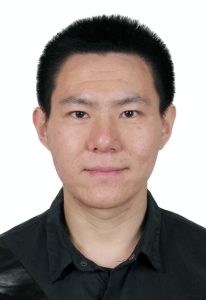Lei Wang |
|
|
Dr. Lei WANG received his PhD degree in Chemical Engineering & Technology in 2015, from Harbin Institute of Technology (Harbin, China). During his PhD, he studied at the University of Maryland (College Park, USA) and University of Leeds (UK) for one and a half years, respectively. He continued his researches as a Postdoctoral Researcher at HIT for two years after graduation, under the supervision of Prof. Dr. Xin Huang, then he joined IBEC in late 2017 as a Postdoctoral Researcher at the Smart Nano-Bio-Devices group, led by Prof. Dr. Samuel Sánchez, with the cofounding of Marie Curie fellowship and Severo Ochoa fellowship supporting on the project of fabrication of protein-based nanomotors. His current research is focused on the various clinical applications based on the self-assembly of biomaterials. |
 |
Group: Smart Nano-Bio-DevicesSupervisor: Samuel Sánchez |
|
Project: Fabrication of Janus micromotor based on protein self-assembly for targeted drug deliveryChemotherapy acts an overarching role in tumor therapy and has received considerable attention in the past decades. However, conventional antitumor drug still suffers from severe limitations such as lack of selectivity between healthy and tumor tissues and nonspecific drug internalization all over the body, thus leading to low therapeutic efficacy and increasing fatal side effects. Targeted drug delivery is hence needed for transporting antitumor drugs, which could localize, target and release the drug into the diseased tissue, reducing the side effects and improving the clinical efficiency. |
|
